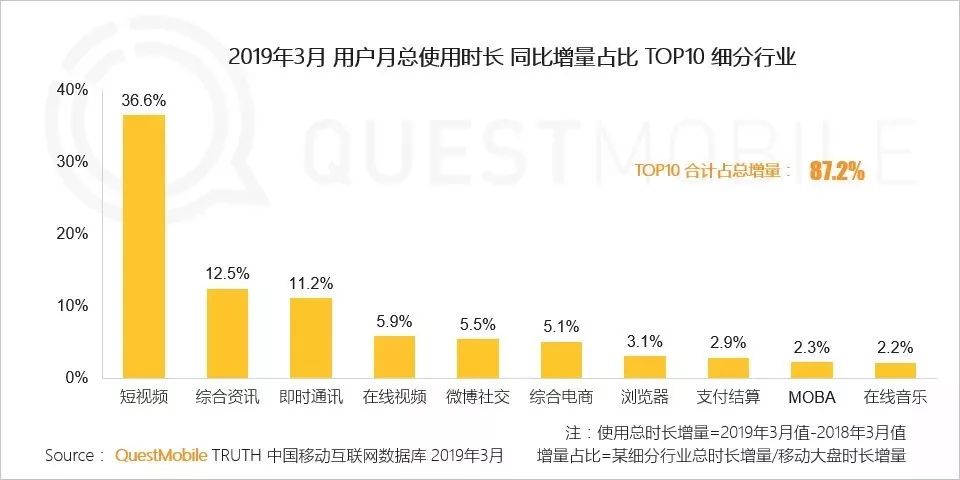This may also be a short-term game.
Editor’s note: This article is from WeChat public account “歪道”(ID:wddtalk ), the author said.
The outside world’s public opinion and regulatory turmoil still failed to stop the rapid expansion of e-cigarettes.
Look around the nightclubs, Internet cafes, convenience stores, all kinds of e-cigarette brands of automatic vending machines are quietly laid out, they and the shared charging treasure placed in the conspicuous place in the store, users Simply use WeChat or Alipay scan code to complete the purchase yourself.
It is worth mentioning that the brand of shared charging treasure has also come out, and it has been inserted.
Among them, the small electric action is the fastest, and a small range of automatic vending machine equipment called iCool has been launched. Street lighting is entangled in selling only electronic cigarettes or making independent e-cigarette brands. .
Besides the craze of e-cigarettes, the most conspicuous is Ruifu coffee.
On July 8, Ruixun Coffee entered the new tea market and announced that it has launched more than 10 Xiaolu teas in nearly 3,000 stores in 40 cities across the country.
This is the first major move of Ruixing in the category expansion after the listing.
Tobacco, alcohol and coffee, the world’s three recognized consumer-grade addictions, have never thought of a storm in the domestic market, before the live, games, short video addiction and addiction have been condemn.
In such a short period of time, it is no accident that various consumer demands that make users addicted are developed one by one.
From technology addiction to substance addiction
In the early days of mobile Internet, fragmentation time spawned new forms of social games, information flow, short videos, and knowledge payment. Content products, and now the concept of fragmentation seems to be no longer valid.
According to QuestMobile’s “China Mobile Internet 2019 Spring Report”, as of In March 2019, the time spent by mobile Internet users in China on the mobile Internet was 349.6 minutes per day, an increase of 36.8 minutes. In March 2019, 36.6% of the user’s total monthly usage time was spent on short videos.
In addition, QuestMobile’s short video 2019 semi-annual report also said that the short video monthly per capita time is more than 22 hours, up 8.6% year-on-year, instead of online video, mobile games,Online music is falling.
Users’ addiction to mobile games or short videos is ostensibly their own choice or degeneration of self-control, but one thing that cannot be ignored is that technology has been driving them to “active” these products. Addictive.
In 2006, when Asa Ruskin worked for a consulting firm, she designed an infinite scroll that allowed users to scroll through pages indefinitely.
He revealed that technology companies have been testing people to find the best way to make them addicted.
Simple as a praise function, its design allows users to unconsciously want to see how many likes, or try to get more likes, without the bottom line of rolling messages to induce users to continuously pull down and refresh.
Today, social media, information streaming and short video platforms are becoming more and more sophisticated on how to stimulate dopamine in the brain. They even cater to the natural interests of human nature, thus firmly controlling users. Free time.
From WeChat, Weibo to today’s headlines, fast-handed vibrato, the emergence of algorithmic recommendations indicates that technical addiction has reached a new height. By recording user behavior and performing data analysis, it can be more directly perspective and Grasping the weakness of human nature, the problem of Internet addiction is becoming more and more open.
However, From short videos to e-cigarettes and light coffee, the Internet has turned to the “addictive” consumption of substances. This change seems to be even more unpredictable, just as the pace of innovation has entered a certain misunderstanding.
According to the statistics of IT Orange, as of June 5, 2019, at least 14 e-cigarette companies have completed financing in China, and the accumulated financing amount exceeded 574 million yuan.
The rise of e-cigarettes is somewhat ridiculous. At the beginning of this year, Zhu Xiaomu, the employee of No. 001 of the original Hammer Technology, founded the “Fulu E-cigarette” on his own. In February, Lao Luo was photographed in Shenzhen. Looking for suppliers of e-cigarettes, and also with a certain boss in the industry.
Subsequently, entrepreneurs and investors continued to flood in, sending e-cigarettes to the cusp in a questioning voice.
The outside world does not understand the speed of the lucky.
In May, Ruixing was listed in the US, creating the shortest time record of the IPO of Chinese companies from establishment to the United States.
Coincidentally, coffee and e-cigarettes are inseparable from one word:
addiction.
Short-term games, reflection or degradation?
Internet products add to the user’s addiction, which used to be a step-by-step process.
Zhang Yiming created a byte jump in a house in Zhichun Road in 2012, and today the headline goes online, 2015Tencent launched the first information flow defense war, and the entire information market saw the rise of today’s headlines.
From user accumulation to user addiction, it took at least 3 years for the headline today;
In 2016, the byte jumped short video, the vibrato, volcano, and watermelon videos started almost simultaneously, and at the end of 2017, the vibrato was too small to be valued by the giants.
After the Spring Festival in 2018, the vibrato grew at a rocket-like speed and hit the fast, and the young group picked up a short video carnival, which took nearly two years;
The reason why today’s headlines or vibrato can make users addicted is the driving force of the algorithm. On the one hand, the core of the product is that the product function needs an increasingly perfect process, and the user needs a process of product cognition. .
But nowadays, e-cigarettes and light coffee have skipped this process. In less than half a year, they have attracted the attention of capital and users, the listing of the listing, and the expansion of expansion.
Indulging in indulging and temptation driven by capital can be said to be economically inevitable, because Internet competition is essentially competing for user time, and the more intoxicated users, the more economic benefits it generates.
However, materials such as coffee and e-cigarettes that are directly addictive are now so hot in the venture and investment circle that it is unheard of for years to see how the Internet has changed.
There is no transformative business model, and it lacks the appeal of product innovation. It relies on its own addictive nature, ensuring user stickiness and repurchase rates.
But this is precisely what capital is now valued. It does not try to make a profit. It does not expect high market value. It will push the project in the start-up period to the IPO at an extremely fast speed, and then cash out.
Therefore, e-cigarette, coffee and other addictive consumption is the best capital story. First, addiction makes consumers easily dependent on products or a certain brand of products. Second, the domestic market has a large room for growth. Once it is shaken, the profit prospects are bright.
The trend of rapid capitalization is both a reflection and a helpless choice in the environment.
In the live broadcast, the sharing economy, the unmanned shelves and other slogans, the influx of capital from various sources eventually distorted the arena that might have been benign development, and many investors failed to exit successfully. Many investors admit that “everyone I have not been able to afford a round of valuation games.”
As Tian Xiaotian’s CEO Hou Xiaotian said, there is an anxiety in the country. Everyone doesn’t know what tomorrow is. I don’t know if the capital market will be good or bad. I hope to get the money I’m throwing out as soon as possible. come back.
The ecology of addictive consumption
Harris said, “After a person’s addiction, thousands of people work hard and try to make you addicted.”
Capital pursues short-term returns and entrepreneurial projects that favor addictive consumption. Entrepreneurs welcome joint ventures and try to make users “addicted” to products and harvest their time in exchange for benefits. Therefore, users are weak in this business chain. The only initiative is restraint.
However, the criteria for determining addiction are not the length of the user.
Adam Alte, Ph.D. in psychology, believes that:
Behavioral addiction is only when the rewards of an act at the moment are ultimately offset by its devastating consequences.
In other words, there are no destructive consequences or devastating consequences less than rewards, ie no addiction.
But this is only for the individual. On the macro level, the reason why the addictive consumption is confronted with public opinion is precisely because the destructive consequences are accumulated and become more common.
Herley wrote a book in 1931 called “Beautiful New The World, he has a classic prophecy in the book, “People will gradually fall in love with the industrial technology that makes them lose their ability to think.”
Algorithm recommendation is undoubtedly the most typical one.
On the one hand, the algorithm limits users to the information mortuary, and it is easy for their interests to become more and more single, and the cognition is becoming narrower and narrower.
On the other hand, excessive content “feeding” slowly weakens the user’s ability to think and explore.
Once this destructive consequence is subtle, the impact is far-reaching.
In addition, the addictive mechanism of forwarding, praise, and attention in the design of Internet products is essentially encouraging and indulging users to imitate, and the imitation is usually that some sensory stimulation is strong or very rich. Controversial content.
The devastating consequences of this behavior, first, the risk of accidents, such as the case of injury and disability in the vibrato, has caused concern. The second is to induce risk. The user’s behavior choice is influenced by the short video content, but the negative tends to be more easily imitated, but the positive one is not respected.
Today, the youth group is generally dreaming of a net of the whole people, which already illustrates the problem.
The disruptive consequences of the transition of Internet addiction consumption to e-cigarettes and coffee are even more pronounced.
In 2018, 1.5 million American teenagers joined the e-cigarette army, with the use of high school students surged by 78% and junior high school students by 48%.This shows that the e-cigarette, which was originally intended to replace cigarettes, is prompting teenagers to start smoking. The destructive consequences of e-cigarettes are here.
If users are addicted to games or short videos, they can also be controlled by outside intervention, platform rules or self-control. E-cigarettes, coffee, substances that are naturally born with addictive genes can be controlled. The difficulty has multiplied.
But capital and entrepreneurs seem to have no time to pay attention to these. All they want is to seize the policy window and get bigger and go to the market.
Human weakness or physiology, let the Internet learn more about excretion needs, user addiction and addiction bring commercial profits to stakeholders, but this may also be a short-term game.

